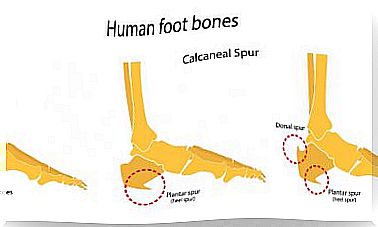Types Of Aphasia That A Student Should Know
Aphasia is a neurological disease caused by damage to the left hemisphere of the brain. Therefore, it affects the abilities or functions that arise from this body area. In particular, it alters linguistic abilities (comprehension, reading, facial and written expression, speaking, etc.).
This pathology is also closely related to hemiparesis or paralysis on one side of the body. In this case, right-sided paralysis (the nerve pathways appear crossed).
Likewise, it is possible to point out a series of causes that can trigger this disorder. For example, they include:
- Stroke
- Head trauma.
- Infections in this body area.
- Tumors that affect the central nervous system.
- Neurodegenerative diseases such as Alzheimer’s or Parkinson’s.
Types of aphasia
We can appreciate different types of aphasia depending on their characteristics and severity.
Global aphasia
In this case, the patient’s ability to speak is seriously impaired. On the other hand, the subject is not able to read or write normally and cannot understand everyday language.

It is normally produced by the obstruction of the arteries that reach the patient’s brain, especially those found in the dominant hemisphere.
Broca’s aphasia or major motor aphasia
As a general rule, subjects have difficulties in understanding language and when writing. Agrammatism or inability to make sentences with an adequate morphological structure is also usually present. Sometimes the patient may present sensory and motor problems on the right side of the body.
Although in the first moments of evolution of the disease the patient presents serious alterations, he is able to improve his capacities. However, he cannot return to his initial or pre-injury skills.
Therefore, it is important to start therapy as soon as possible to achieve maximum efficacy. Finally, it is common that people with this alteration are not able to regain the intonation they used to adopt. If the patient is right-handed, he may need to relearn to write with the other hand (if affected).
Transcortical motor aphasia
At first it presents symptoms similar to Broca’s aphasia or major motor aphasia. However, the understanding of language has not changed and the patient is able to articulate sentences normally.
On the other hand, the biggest problem lies in spontaneity within the production of speech or conversation.
Conduction aphasia
Although the normal understanding of language is not usually affected , problems appear in the fluency of speech. Thus, the subject communicates through short and interrupted sentences due to problems in the selection and pronunciation of words.
Amnesic or anomic aphasia
As a general rule, the capabilities of the patient are relatively intact. However, it shows anomie or difficulty in finding the desired words (to designate objects, places, etc.) occasionally.
Wernicke’s aphasia or sensory aphasia
In this subtype, the patient can speak fluently, unlike other aphasias such as Broca’s. However, language compression, writing, and reading are severely affected. This is because the subjects include new words (also called neologisms) or invented grammatical structures.
Therefore, these people have their own jargon even though they are able to formulate relatively complicated or long sentences.

Likewise, paraphrasia (substitution of phonemes or words) appears frequently and the patient is not aware of it. Neither does paralysis appear (either partial or total of the right part of the body) so the affected person can write normally even though the content is incomprehensible.
In any case, aphasia is a severe pathology that must be treated as soon as possible. It is necessary to carry out a complete study of it since it is usually associated with other neurological deficits and affects the quality of life of the patient in a very negative way.
Sometimes it is necessary to resort to psychological therapy, not only of the patient but also of the relatives who live in it, as the person’s communication capacity is affected. Therefore, it is recommended to go to your medical team.









